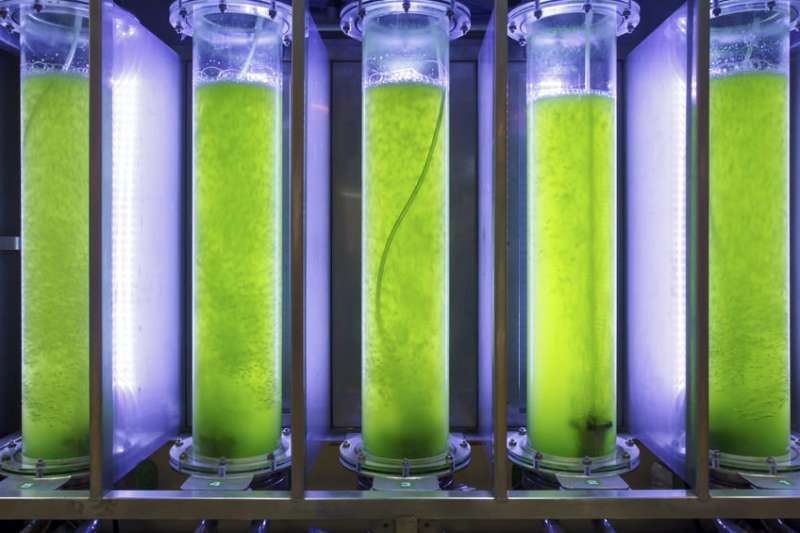Researchers are investigating ways to improve lipid extraction from microalgae to make biofuels. Credit: 123rf/Akhararat Wathanasing
Researchers are investigating ways to improve biodiesel production by using electrical fields to break open microalgae cells with varied results, according to a new study in the Pertanika Journal of Science & Technology.
Lipids inside microalgae are a promising source of biofuel. Microalgae cells must first be broken apart in order to extract the lipids. Conventional technologies are energy intensive and time consuming, so a group of researchers from Universiti Malaysia Sabah investigated a novel method using direct electrolysis.
During electrolysis, cells are disrupted when electric field forces overcome the interactions which hold membranes together, resulting in the formation of pores in the cell membrane. In this study, the researchers passed the microalga Chlorella sp. through electric fields of different strengths generated by two stainless steel electrodes. Electrolyzed cells were subsequently freeze-dried and treated with solvents to extract lipids.
The amount of lipids extracted from cells that passed through low electric fields was the same as cells that did not go through electrolysis. In contrast, at high electric fields, 11% to 13% fewer lipids were extracted from electrolyzed cells than the untreated cells. The researchers hypothesized that the lipids may have been lost through oxidation during electrolysis.
The researchers also investigated if solvents are required for lipid extraction of electrolyzed cells. Their analysis found that lipids were present only in the solvent extract, indicating that lipids cannot be extracted by electrolysis alone.
Methyl palmitate – a fatty acid preferred for use in biodiesel engines, and methyl linolenate were the major components in the extracted lipid, with no significant difference in methyl palmitate concentration of electrolyzed and untreated samples. The researchers also observed that no intact cells remained after electrolysis. The findings indicate that while the direct electrolysis treatment was effective at disrupting microalgal cells, it did not significantly enhance lipid extraction efficiency.
For the method to achieve the higher lipid yields reported in literature and be feasible for microalgal lipid extraction in biodiesel production, parameters such as field strength and solvent type should be optimized. Further investigation into the effect of oxidation on lipid loss is also required.
Provided by Universiti Malaysia Sabah























